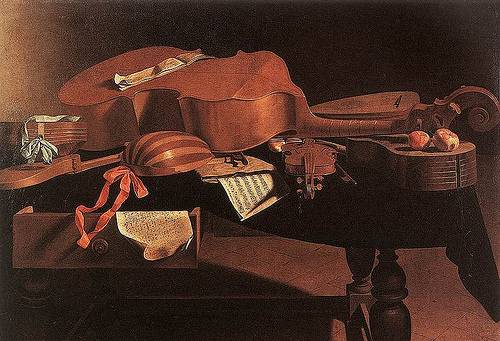
A young man, poorly clothed, presented himself before a dealer in curiosities. ‘Sir,’ said he, showing a violin which he carried, ‘I am a musical artist; this is the season of balls and soirées; I have just had a long illness which has exhausted my purse; my only black coat is in pawn, I shall be much obliged if you will lend me ten francs to redeem it. I will leave as security one of the violins you see, for I have two; it is an excellent instrument. I shall return for it as soon as, thanks to my coat, I shall have earned enough money for the purpose.’ The young man had such an honest bearing that the dealer lent him ten francs and kept the violin, which he hung up in the shop. The next day but one, a gentleman, well-dressed, wearing at his buttonhole the ribbon of the Legion of Honor, was choosing from the dealer’s stock of goods some shell-work. Seeing the violin, he took it up, examining it narrowly. ‘What is the price of that instrument?’ said he. ‘It is not mine,’ replied the shopkeeper; and he related how he came to possess it. ‘This violin,’ continued the unknown, ‘is worth money, it is a Cremona. Perhaps its owner is ignorant of its value. If he returns, offer him two hundred francs for it.’ Then handing fifty francs to the shopman, the unknown said on taking his leave, ‘You will keep that for yourself if the affair succeeds; I will return in a few days.’ Two days after, the young man reappeared, bringing the ten francs to redeem his violin, for which the dealer offered him two hundred. After some hesitation, he agreed. At the end of a week, the dealer, not having seen the decorated gentleman, became suspicious; he carried the violin to an instrument-maker, who offered him three francs for it.
— Thomas Brackett Reed et al., Modern Eloquence, 1900
